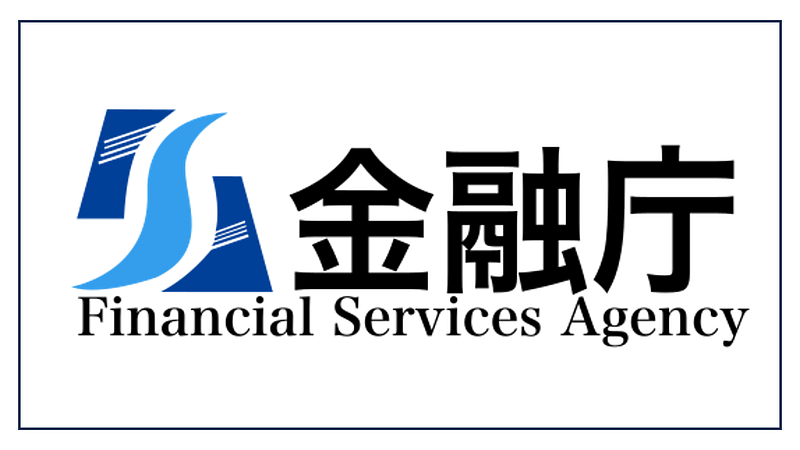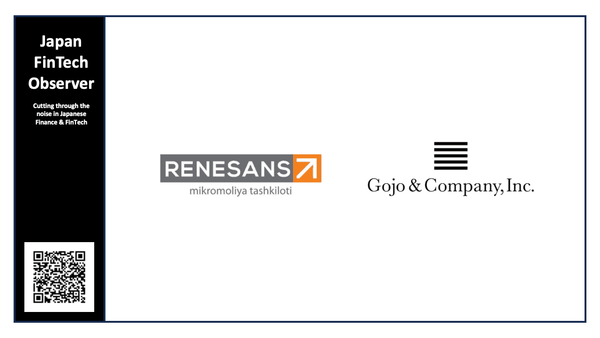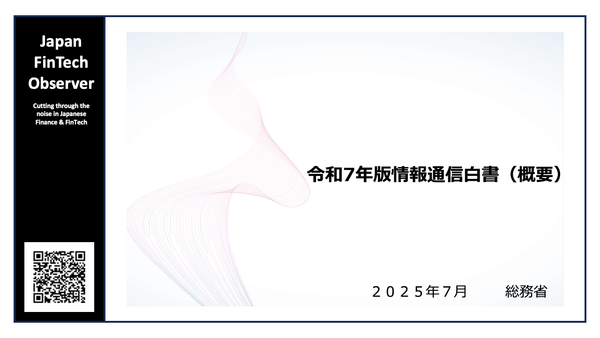The FSA’s FY2024 Administrative Policy
This Financial Services Agency (FSA) has published its administrative policy for the fiscal year 2024, starting in August 2024. It lays out…

This Financial Services Agency (FSA) has published its administrative policy for the fiscal year 2024, starting in August 2024. It lays out the FSA’s overarching objectives, outlining its strategy to contribute to sustainable economic growth, ensure the stability and reliability of the financial system, and continuously improve financial administration.
I. Contributing to Sustainable Economic Growth through the Financial Mechanism
The FSA acknowledges that Japan’s economy is steadily recovering from deflation, with signs of sustained growth. The administrative policy stresses that the financial system plays a crucial role in amplifying these positive developments and building a solid foundation for a future of inclusive economic prosperity. To achieve this, the FSA emphasizes the following.
Promoting an Asset Management Nation
The FSA will continue to implement the “Asset Management Nation Realization Plan,” released in December 2023, which outlines a comprehensive strategy to enhance the asset management industry. This includes facilitating the development of a robust investment chain, enabling individuals to build stable assets, and supporting the growth of startups by providing access to capital. This will be achieved through initiatives such as:
- Encouraging the appropriate use of the new NISA (Nippon Individual Savings Account): The FSA plans to foster the widespread adoption of the new NISA introduced in 2024, promoting the importance of long-term, diversified, and accumulating investments. This will be achieved through measures such as the simplification of procedures and greater accessibility for a wider range of individuals.
- Promoting financial education: The FSA will encourage the expansion of financial literacy initiatives, including the development of qualified advisors, broadening the reach of financial education in schools and workplaces, and raising awareness about investment fraud and the importance of managing risk proactively.
- Strengthening Corporate Governance and Financial Markets: The FSA will promote sound corporate governance and a more efficient financial market by encouraging companies to embrace corporate governance principles and provide clear disclosures to investors. It will also facilitate transparency in the market and enhance the effectiveness of corporate governance practices.
- Enhancing the efficiency and functions of the Tokyo Stock Exchange (TSE): The FSA will work closely with the TSE to promote a corporate culture that incorporates capital cost and stock price awareness, enhancing the role of boards of directors and fostering dialogue between companies and investors. The administrative policy also mentions plans to move towards T+1 settlement for stock transactions, aligning with global market practices.
- Ensuring Market Reliability: The FSA will leverage its supervisory functions to foster a fair and transparent market environment, safeguarding investor interests and upholding market integrity. This includes strengthening market surveillance, enhancing audit quality, and promoting impactful investing.
- Supporting the Growth of Asset Management Businesses: The FSA aims to foster a vibrant asset management industry by facilitating the participation of domestic and international asset management companies. This includes streamlining the onboarding process for asset management companies, facilitating the creation of a diverse range of investment products, and promoting international engagement.
Championing Sustainable Finance
The FSA emphasizes the importance of sustainable finance to tackle pressing societal challenges such as climate change. The administrative policy outlines the FSA’s plan to encourage sustainable investments and foster a sustainable financial system by:
- Improving the Quality and Reliability of Corporate Sustainability Disclosures: The FSA aims to align with international standards for sustainability reporting, promoting the integration of sustainability considerations into corporate reporting practices. This will involve efforts to harmonize domestic and international standards, encouraging the use of the International Sustainability Standards Board (ISSB) framework, and providing guidance on best practices for sustainability disclosures.
- Building Robust Data Infrastructure for Sustainability: Recognizing the crucial role of data in driving sustainable finance, the FSA will work with stakeholders to establish a comprehensive data infrastructure that makes sustainability data easily accessible to market participants.
- Facilitating Financial Institutions’ Support for Decarbonization: The FSA emphasizes the critical role of financial institutions in supporting the transition to a low-carbon economy. The FSA will work with stakeholders to ensure adequate financial resources for decarbonization efforts, particularly for mid-sized companies, and encourage the adoption of impact investment principles.
- Expanding Impact Investing: The FSA will continue to champion impact investing, promoting investments that create positive social and environmental change alongside financial returns. This will be achieved through initiatives such as the establishment of a platform for impact measurement and data collection, promoting impact-focused business strategies, and fostering collaboration between government and private sector actors.
Embracing Digital Transformation in Financial Services
The FSA recognizes the transformative power of digital technologies, such as artificial intelligence (AI) and blockchain, in shaping the future of financial services. It aims to promote the responsible use of these technologies to enhance financial service offerings while safeguarding consumers and upholding the integrity of the financial system. Key initiatives include:
- Harnessing the Potential of AI and FinTech: The FSA acknowledges the potential of AI and FinTech to enhance efficiency, innovation, and consumer experience in financial services. It will foster a regulatory environment that encourages the adoption of these technologies while addressing potential risks, promoting the use of AI in areas like risk analysis and financial supervision, and engaging in international dialogue to address the global implications of these technologies.
- Navigating the Evolution of Crypto Assets and Web 3.0: The FSA recognizes the evolving landscape of crypto assets and Web 3.0 and aims to promote their responsible development and use. This includes enhancing the regulatory framework for crypto exchanges, emphasizing security and consumer protection, and contributing to international efforts to develop global standards for these technologies. The administrative policy highlights the importance of fostering collaboration between financial regulators and industry participants to address concerns surrounding money laundering, terrorism financing, and other financial crimes.
- Elevating Payment and Trading Infrastructure: The FSA will continue to promote the development of a secure and efficient payment and trading infrastructure. This includes facilitating the adoption of open APIs, fostering collaboration across payment systems, and engaging in international discussions to improve cross-border payments.
II. Ensuring the Stability, Reliability, and High Quality of Financial Services
The FSA recognizes the importance of a stable and reliable financial system, particularly given the increasing economic and geopolitical uncertainties. The administrative policy outlines measures to strengthen the financial system and enhance the quality of financial services provided by various industry players. These measures include the following.
Addressing Cross-Sector Challenges
The FSA will focus on a range of issues affecting multiple sectors within the financial system. Key areas of focus include:
- Strengthening Financial Institutions’ Resilience and Performance: The FSA will ensure financial institutions are well-capitalized, with robust management systems in place. This involves examining their risk management practices, governance structures, internal audit functions, and their ability to navigate international market dynamics. The FSA emphasizes the need to address systemic risks that could arise from interconnectedness in the global financial landscape.
- Supporting Business Recovery and Growth: The FSA will work to ensure financial institutions effectively support businesses facing various challenges, such as those related to succession planning or the post-pandemic economic recovery. This includes fostering a culture of business lending that focuses on the viability of the business itself rather than solely relying on collateral or guarantees. The administrative policy emphasizes the importance of financial institutions taking a proactive role in advising and supporting businesses on topics like mergers and acquisitions (M&A).
- Encouraging Sustainable Lending Practices: The FSA aims to encourage financial institutions to adopt lending practices that promote the long-term sustainability and growth of borrowers, considering not just immediate financial metrics but also the overall impact on the business and the environment. This includes encouraging the adoption of “business lending” practices that focus on the underlying viability of the business rather than relying on collateral or guarantees.
- Safeguarding Against Emerging Risks: The FSA recognizes the growing threat of financial crimes, including cybercrime, money laundering, and terrorism financing. The administrative policy underscores the need for enhanced vigilance and collaboration between financial institutions and law enforcement agencies. The FSA will also focus on strengthening cybersecurity measures, promoting the responsible use of emerging technologies, and fostering international cooperation.
Addressing Specific Industry Concerns
The FSA acknowledges the diverse range of challenges faced by different sectors within the financial industry and outlines specific strategies for each:
- Major Banks: The FSA will continue to work closely with major banks, encouraging them to proactively manage risks, develop robust internal controls, and comply with regulatory requirements. It will also monitor their lending practices, particularly in areas like real estate, and assess their ability to manage liquidity risks.
- Regional Financial Institutions: The FSA recognizes the unique challenges faced by regional financial institutions, particularly in regions experiencing population decline and economic hardship. The FSA will continue to support these institutions in developing sustainable business models, encouraging them to focus on core functions like business lending and providing services that address local needs. The FSA will also monitor their risk management practices and their capacity to navigate market volatility.
- Securities Companies: The FSA will continue to work with securities companies to maintain high standards of conduct, ensuring they uphold fair and transparent market practices and contribute to a thriving capital market. This includes monitoring their business models, promoting risk management practices, and fostering a culture of responsible investment advice.
- Insurance Companies: The FSA will focus on restoring public confidence in the insurance sector and ensuring the industry’s long-term sustainability. This involves addressing concerns about the practices of large insurance brokers, encouraging transparency in insurance sales practices, and promoting a proactive approach to risk management. The administrative policy also emphasizes the need for the insurance sector to address challenges posed by climate change, including rising insurance costs due to natural disasters.
III. Continuously Enhancing and Deepening Financial Administration
The FSA acknowledges the need for continual adaptation and innovation in financial administration to keep pace with a rapidly evolving landscape. The administrative policy outlines measures to enhance the effectiveness of financial administration and improve the organization’s capabilities.
Key initiatives include:
- Modernizing Financial Administration: The FSA will embrace data-driven decision-making, leverage advanced analytics, and enhance its collaboration with other financial authorities. It will work to improve data collection and analysis capabilities, building upon existing initiatives and fostering further collaboration with academic institutions. The administrative policy also highlights the need for stronger collaboration between the FSA and regional authorities to ensure a consistent and effective approach to supervision.
- Strengthening Organizational Capacity: The FSA recognizes the importance of its workforce and aims to cultivate a workplace that fosters growth and attracts talent. This includes investing in staff training and development, promoting career paths that align with individual strengths, and encouraging a collaborative work environment. The administrative policy also underscores the need for effective leadership and management practices, ensuring that all staff feel empowered to contribute their ideas and expertise.
Conclusion
The Financial Services Agency’s FY2024 Administrative Policy outlines a comprehensive vision for navigating the challenges and opportunities of the evolving financial landscape. By promoting sustainable economic growth, strengthening the financial system, and continuously enhancing financial administration, the FSA aims to build a more robust and resilient financial sector that contributes to a thriving and inclusive society. The administrative policy reflects a commitment to transparency, collaboration, and adaptability, recognizing the importance of working alongside industry partners, policymakers, and international stakeholders to achieve shared goals.
Please follow us to read more about Finance & FinTech in Japan, like hundreds of readers do every day. We invite you to also register for our short weekly digest, the “Japan FinTech Observer”, on Medium or on LinkedIn. Our global Finance & FinTech Podcast, “eXponential Finance” is also available through its own LinkedIn newsletter, or via our Podcast Page.
Should you live in Tokyo, or just pass through, please also join our meetup. In any case, our YouTube channel and LinkedIn page are there for you as well.




